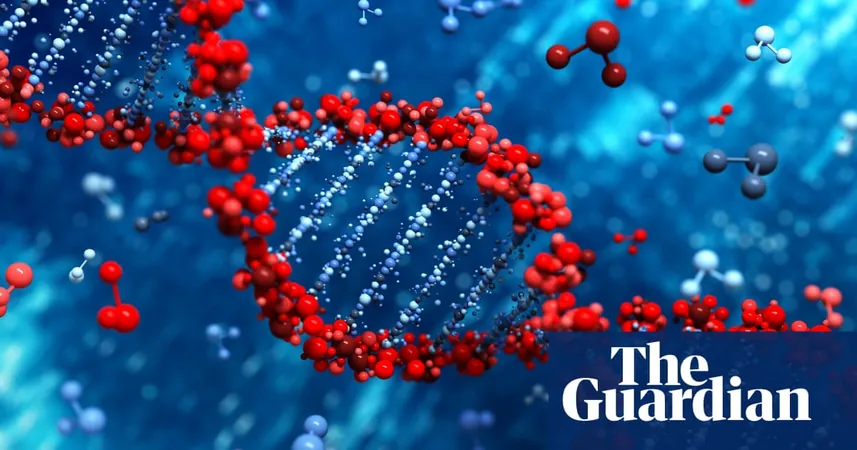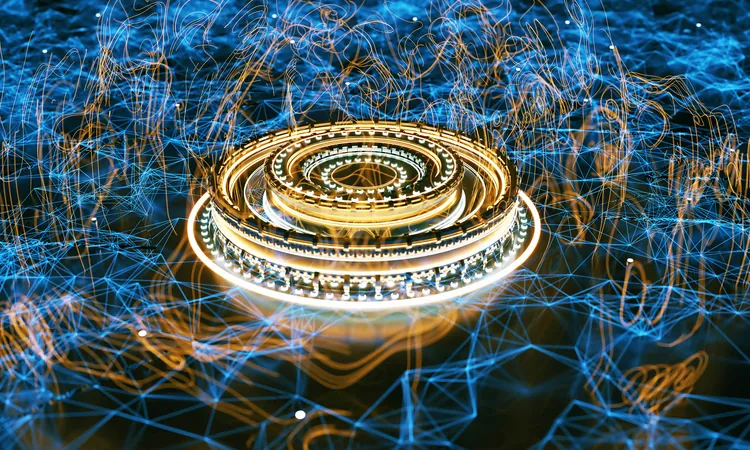
Scientists Warn: 'Mirror Life' Microbes Could Spell Disaster for Earth's Ecosystems!
2024-12-12
Author: Ming
Scientists Warn: 'Mirror Life' Microbes Could Spell Disaster for Earth's Ecosystems!
In a groundbreaking development that raises alarm bells for life as we know it, a coalition of leading scientists, including several Nobel laureates, is advocating for an immediate halt on all research related to the creation of “mirror life” microbes. These synthetic organisms, which represent inverted versions of the molecules found in nature, pose what experts describe as an “unprecedented risk” to ecosystems and human health worldwide.
The group, comprising 38 renowned scientists, has expressed serious concerns that if these mirror bacteria were to be released into the environment, they could bypass the immune defenses of natural organisms. This poses a threat not only to human beings but to vital wildlife and plants as well, potentially leading to lethal infections that spread uncontrollably.
Professor Vaughn Cooper, an evolutionary biologist from the University of Pittsburgh, stressed the enormity of the threat posed by these engineered microbes. “The threat we’re talking about is unprecedented. Mirror bacteria could likely evade many human, animal, and plant immune system responses, causing deadly infections that could go unchecked,” he warned.
The scientific community has previously celebrated the promise of mirror molecules, which could offer breakthroughs in treating chronic illnesses and crafting advanced bioproduction facilities resistant to contamination. However, as a new risk assessment has illustrated, the consequences of pursuing such research could be catastrophic, diverting attention from the potential benefits.
In a detailed 299-page report published in the journal *Science*, the expert group called for an urgent global dialogue surrounding the implications of mirror microbes. The report emphasizes the difficulties in containing these engineered organisms, noting that traditional antibiotics might prove ineffective against them.
Dr. Craig Venter, well-known for his role in sequencing the human genome, participated in this pivotal discussion. His involvement not only underlines the significance of the warning but also reveals the growing unease regarding genetic advances.
Moreover, Dr. Kate Adamala, a synthetic biologist who previously explored the creation of mirror cells, reversed her stance upon realizing the potential dangers outlined in the report. “We should not be making mirror life. We have time for the conversation,” she stated, emphasizing the necessity for society to engage in extensive discussions before proceeding with such research.
Highlighting the necessity of balancing caution and innovation, Professor Paul Freemont from Imperial College London, who was not part of the report, acknowledged the importance of an open debate. “While it’s crucial to identify risks, we must also explore the positive applications of mirror chemistry carefully, recognizing the need for a regulated approach,” he remarked.
In sum, the urgent plea from the scientific community serves as a powerful reminder of the responsibility that comes with manipulating life itself. As researchers delve further into the realm of mirror life, the overarching question remains: how do we balance scientific curiosity and innovation with the paramount need for safety on our planet? Let the global conversations begin before it's too late!



 Brasil (PT)
Brasil (PT)
 Canada (EN)
Canada (EN)
 Chile (ES)
Chile (ES)
 España (ES)
España (ES)
 France (FR)
France (FR)
 Hong Kong (EN)
Hong Kong (EN)
 Italia (IT)
Italia (IT)
 日本 (JA)
日本 (JA)
 Magyarország (HU)
Magyarország (HU)
 Norge (NO)
Norge (NO)
 Polska (PL)
Polska (PL)
 Schweiz (DE)
Schweiz (DE)
 Singapore (EN)
Singapore (EN)
 Sverige (SV)
Sverige (SV)
 Suomi (FI)
Suomi (FI)
 Türkiye (TR)
Türkiye (TR)